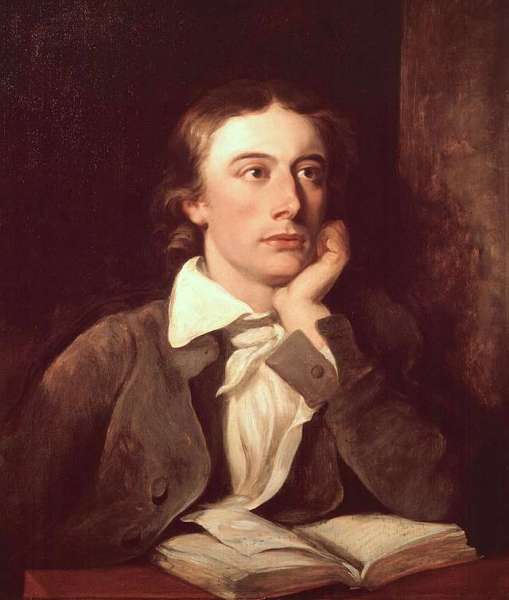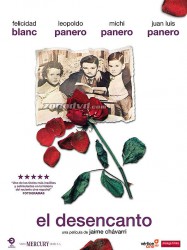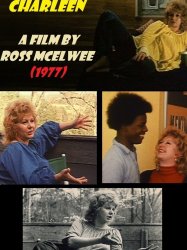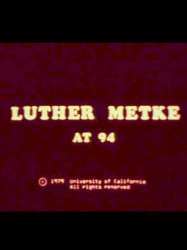Keats and His Nightingale: A Blind Date est un film américain de genre Documentaire
Keats and His Nightingale: A Blind Date (1985)

Si vous aimez ce film, faites-le savoir !
- Infos
- Casting
- Infos techniques
- Photos
- Vidéos
- Passages TV
- Citations
- Personnages
- Musique
- Récompenses
Keats and His Nightingale: A Blind Date is a 1985 American short documentary film directed by Jim Wolpaw. It was nominated for an Academy Award for Best Documentary Short.
^ "NY Times: Keats and His Nightingale: A Blind Date". NY Times. Retrieved 2008-12-03.
Commentaires
Postez un commentaire :
Suggestions de films similaires à Keats and His Nightingale: A Blind Date
Il y a 8965 ayant les mêmes genres cinématographiques, 3169 films qui ont les mêmes thèmes (dont 105 films qui ont les mêmes 2 thèmes que Keats and His Nightingale: A Blind Date), pour avoir au final 70 suggestions de films similaires.Si vous avez aimé Keats and His Nightingale: A Blind Date, vous aimerez sûrement les films similaires suivants :

Love Always, Carolyn (2011)
, 1h10Genres Documentaire
Thèmes Film sur un écrivain, Documentaire sur une personnalité
Note63%






El desencanto (1976)
, 1h37Réalisé par Jaime Chávarri
Genres Drame, Biographie, Documentaire
Thèmes Film sur un écrivain, Documentaire sur une personnalité
Note78%





The Panero is an illustrious traditional family from Astorga with literary links extending for generations. The patriarch, Leopoldo Panero, was the best regarded poet in Spain during his time. He died suddenly of a heart condition in 1962. Twelve years later, his widow, the still beautiful and elegant Felicidad Blanc, in the company of two of her sons Juan Luis and Michi, is shown in an outdoor homage to the late poet.
 , 1h40
, 1h40Réalisé par Donald Brittain
Origine Canada
Genres Documentaire
Thèmes Film sur un écrivain, Documentaire sur une personnalité
Acteurs Richard Burton, Donald Brittain, Marjorie Bonner
Note70%





Long métrage documentaire sur l’écrivain Malcolm Lowry. Aux prises avec ses démons, ses cauchemars, ses fantasmes, obsédé par le suicide d’un de ses amis, Lowry vécut une longue agonie d’alcoolique. Ce qui ne l’empêcha pas de livrer au monde des pages qui le situent parmi les plus grands écrivains du 20e siècle. Des gens qui l’ont bien connu témoignent du voyage aux enfers de cet homme, dont l’âme fut errance, le corps embarras et l’œuvre génialité.

Fairytale of Kathmandu (2007)
, 1hGenres Documentaire
Thèmes Film sur un écrivain, Sexualité, Homosexualité, Documentaire sur l'homosexualité, Documentaire sur une personnalité, LGBT, LGBT
Note72%





 , 1h18
, 1h18Genres Documentaire
Thèmes Film sur un écrivain, Documentaire sur une personnalité
Acteurs Matt Damon
Note73%





 , 59minutes
, 59minutesRéalisé par Ross McElwee
Genres Documentaire
Thèmes Film sur un écrivain, Documentaire sur une personnalité
Acteurs Ross McElwee
Note72%






Ayn Rand: A Sense of Life (1998)
, 2h25Origine Etats-Unis
Genres Documentaire
Thèmes Film sur un écrivain, Documentaire sur une personnalité
Acteurs Sharon Gless
Note64%





Actress Sharon Gless narrates the story of Rand's life and an overview of her ideas. In addition to color and black-and-white archival footage of Rand, the film includes appearances by philosophers Harry Binswanger and Leonard Peikoff, CBS News correspondent Mike Wallace, television interviewers Phil Donahue and Tom Snyder, architect Frank Lloyd Wright, political figures Joseph Stalin and Leon Trotsky, and Hollywood personalities Cecil B. DeMille, Edith Head, Adolphe Menjou, Marilyn Monroe and Robert Taylor.

Reporter (2009)
Genres Documentaire
Thèmes Film sur un écrivain, Journalisme, Documentaire sur une personnalité
Acteurs Mia Farrow
Note71%






Luther Metke at 94 (1980)
, 27minutesRéalisé par Jorge Preloran
Origine Etats-Unis
Genres Documentaire
Thèmes Film sur un écrivain, Documentaire sur une personnalité
Note69%





 , 27minutes
, 27minutesOrigine Etats-Unis
Genres Documentaire
Thèmes Film sur un écrivain, Journalisme, Maladie, Le suicide, Documentaire sur l'art, Documentaire sur une personnalité, Documentaire sur la santé, Folie, Le handicap
Note71%





 Connexion
Connexion